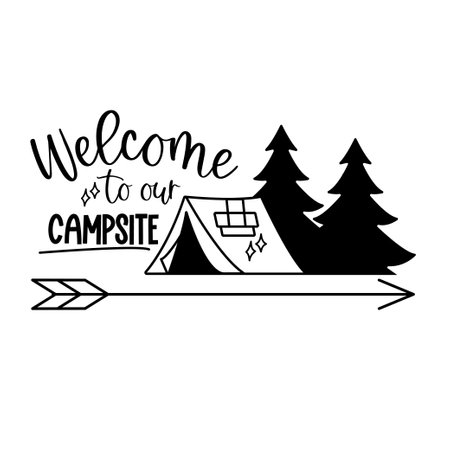Introduction to Low-Impact Camping
When families and camping enthusiasts set out to explore the UK’s breathtaking wild spaces and cherished national parks, it’s natural to want to leave only footprints and take away memories. Low-impact camping is all about enjoying the great outdoors with a gentle touch—minimising our effect on the environment while making the most of nature’s wonders. But what does low-impact camping really mean, especially for parents and children eager for outdoor adventures? In essence, it’s about using gear and practices that reduce harm to landscapes, wildlife, and other visitors. This approach has become increasingly important across Britain as more people seek solace in places like the Lake District, Snowdonia, or the Scottish Highlands. By understanding the principles of low-impact camping, families can experience magical evenings under canvas, teach little ones to care for nature, and help ensure that these treasured spaces remain pristine for generations of campers yet to come.
2. The Uniqueness of the UK’s Wild Spaces and National Parks
Britain’s wild spaces are nothing short of extraordinary, each with its own personality and charm. From the rolling fells and glassy lakes of the Lake District, to the ancient woodlands and rugged peaks of Snowdonia, all the way up to the windswept grandeur of Scotland’s Cairngorms, these landscapes are woven into the nation’s identity. They’re more than just beautiful places for a family ramble or a quiet moment of reflection—they are vital habitats for wildlife and precious escapes for people across the UK.
However, these beloved spots face growing pressures. As more families and adventure-seekers flock outdoors, the footprints we leave behind become ever more visible. Even small actions—like pitching a tent on delicate grass or leaving behind a stray crisp packet—can have lasting effects on these sensitive environments. The UK’s wild spaces are particularly vulnerable because they are often smaller and more intensively used than vast wildernesses elsewhere in the world.
Let’s look at what makes some of our most treasured parks so special—and why they need gentle care:
| National Park/Wild Space | Unique Features | Vulnerabilities |
|---|---|---|
| Lake District | Dramatic mountains, deep lakes, cultural heritage | Erosion from footpaths, littering, water pollution |
| Cairngorms | Ancient Caledonian pine forests, rare wildlife like red squirrels | Disturbance to wildlife, damage to fragile flora |
| Snowdonia | Diverse landscapes from craggy peaks to lush valleys | Overcrowding, trampling of rare plants |
This means that when families choose their camping kit, it matters—not just for comfort, but for stewardship. By embracing low-impact camping gear and practices, every camper can help protect these national treasures for future generations to enjoy.

3. Features of Low-Impact Camping Gear
In the UK, where wild spaces and national parks are treasured for their beauty and biodiversity, British campers have developed a keen eye for eco-friendly gear that lessens their environmental impact. Choosing the right equipment not only preserves these beloved landscapes but also sets a positive example for future generations.
Lightweight Tents Designed for Minimal Disturbance
One of the mainstays of low-impact camping is the lightweight tent. British campers often opt for designs that are easy to carry on public transport or during long walks across moors and hillsides. These tents typically require fewer pegs and minimal ground disturbance, helping to preserve delicate soils and vegetation found in places like the Lake District or South Downs.
Reusable Crockery and Cutlery
To cut down on single-use plastics, many families and outdoor enthusiasts across the UK now bring reusable crockery, mugs, and cutlery. Not only does this reduce littering—a vital consideration in cherished spots like the Peak District—but it also encourages children to learn about sustainability from an early age. Sharing a meal outdoors with sturdy, reusable plates becomes part of the fun, reinforcing responsible habits in a reassuring, family-friendly way.
Solar-Powered Gadgets for Clean Energy
The unpredictable British weather doesn’t stop campers from embracing clean energy solutions. Solar-powered lanterns and chargers are increasingly popular, allowing adventurers to keep torches charged and phones powered up without resorting to disposable batteries or generators. These gadgets provide peace of mind to parents while ensuring everyone can safely enjoy stargazing evenings or sunrise hikes in areas like Snowdonia or the Cairngorms.
Conclusion: Thoughtful Choices for Shared Spaces
By choosing gear that’s considerate of both nature and other visitors—such as biodegradable toiletries, packable stoves that leave no trace, and responsibly sourced sleeping bags—British campers demonstrate how simple choices can collectively make a big difference. These preferences support the ongoing protection of wild spaces, fostering a culture where families feel secure in their efforts to care for the countryside together.
4. Protecting Habitats and Local Wildlife
When we head out into the UKs wild spaces, from the rolling hills of the Lake District to the ancient woodlands of the New Forest, it’s essential to remember that these beautiful places are home to many fragile habitats and native species. Choosing low-impact camping gear is more than just a personal preference—it’s a thoughtful way to ensure our adventures don’t harm the delicate balance of nature around us. For families enjoying the great outdoors, this means our children and their friends can experience wildlife in its natural setting for years to come.
How Responsible Gear Choices Make a Difference
Low-impact camping gear helps protect habitats by minimising disruption to soil, plants, and animals. For example, lightweight tents with non-invasive pegs reduce ground damage, while reusable cookware prevents litter that could be harmful to animals like red squirrels or hedgehogs. Simple changes in our equipment choices can support conservation efforts across all UK national parks.
| Traditional Gear | Potential Impact on Wildlife | Low-Impact Alternative |
|---|---|---|
| Heavy tents with large stakes | Disturbs soil, damages roots and burrows | Lightweight tents with minimal footprint |
| Single-use plastic cutlery | Litter harms birds and small mammals | Reusable bamboo or metal utensils |
| Disposable BBQs | Burns grass, leaves chemical residue | Portable stoves with leave-no-trace mats |
The Importance of Preserving Native Species
The UK is home to rare creatures such as otters, dormice, and numerous ground-nesting birds. When we use gear designed to limit our impact—like solar-powered lanterns instead of open fires—we help preserve these species’ habitats. Children learn about respecting local wildlife not just through stories but through our example as well. This creates lasting memories and instils values they will carry forward.
Passing on a Legacy of Care
By making responsible choices today, we’re safeguarding wild spaces for tomorrow’s explorers. Next time you pack for a camping trip in one of Britain’s beloved national parks, consider how your gear can help protect the magical world just outside your tent door—for your family and generations yet to come.
5. Supporting Park Management and Conservation Efforts
When families and outdoor enthusiasts choose low-impact camping gear, they do more than just protect the environment—they actively support the work of park rangers and conservation teams across the UK’s treasured national parks. By using lightweight, reusable equipment and following Leave No Trace principles, campers reduce the strain on local waste management systems and help keep natural areas pristine for everyone to enjoy. For example, some popular sites in the Lake District and Snowdonia have seen a noticeable reduction in litter and campsite damage thanks to increased awareness about sustainable camping habits. Campers who use eco-friendly stoves, biodegradable soaps, and reusable water bottles set positive examples for others, making it easier for park staff to focus their efforts on habitat restoration rather than cleanup.
Community-Led Stewardship
Many camping groups now organise regular litter picks or volunteer days to support the upkeep of trails and wild spaces. These initiatives, often coordinated with organisations like the National Trust or Friends of the Peak District, showcase how small changes in individual behaviour—such as packing out all rubbish or using treads that don’t scar the grass—can collectively make a big difference. When campers respect designated pitches and avoid disturbing wildlife habitats, they help preserve the delicate balance that makes these parks so special.
Encouraging Responsible Enjoyment
Low-impact gear encourages visitors to tread lightly and think carefully about their environmental footprint. For example, using solar-powered lanterns instead of disposable batteries reduces chemical pollution in sensitive landscapes such as the Yorkshire Dales. Similarly, opting for compact, durable tents minimises damage to ground vegetation. By making thoughtful choices, campers contribute to a culture of responsibility that ensures national parks remain inviting places for future generations to discover and cherish.
Together for Tomorrow
Ultimately, every action taken by mindful campers—whether it’s choosing sustainable products or joining a local conservation effort—helps strengthen the relationship between people and nature in Britain’s beloved wild spaces. Through these shared values and practical steps, we can all play a part in securing the long-term health and enjoyment of our national parks.
Encouraging Responsible Outdoor Culture
One of the most meaningful ways low-impact camping gear supports the UK’s wild spaces and national parks is by nurturing a culture of responsibility among families and outdoor groups. By actively embracing Leave No Trace principles, British campers can help preserve the countryside for future generations, all while fostering a deeper connection with nature. Here are some practical tips to help cultivate these values:
Start With Family Conversations
Before heading out, gather as a family to discuss why it’s important to protect our natural landscapes. Share stories about your favourite walks in the Lake District or peaceful moments in the Scottish Highlands. Ask children how they would feel if litter or damage spoiled those places, helping them form an emotional bond with nature.
Plan and Pack Mindfully
Choose eco-friendly, low-impact camping gear such as reusable water bottles, biodegradable soap, and lightweight tents made from sustainable materials. Involve children in packing so they understand what each item does and why it matters. Teach them that less is often more when exploring the countryside.
Follow Leave No Trace Steps Together
Create a family checklist based on the Seven Leave No Trace Principles, tailored to UK landscapes. For example: stick to established footpaths on the South West Coast Path, pack out all rubbish including food scraps in Snowdonia, and leave rocks and wildflowers undisturbed in the Peak District.
Model Respectful Behaviour
Children learn best by example. Show them how to quietly observe wildlife at a distance, respect other campers’ space, and avoid making excessive noise. Demonstrate how to set up camp without damaging grass or delicate habitats—perhaps turning it into a fun challenge!
Get Involved Locally
Join countryside clean-up days or volunteer for conservation projects with local park rangers. Many UK national parks offer family-friendly events where everyone can play a part in looking after shared green spaces.
Nurture Lifelong Habits
By weaving Leave No Trace values into your family’s adventures, you’ll help instil a lifelong sense of care for Britain’s precious wild spaces. Remember, every small action—from picking up litter on a rainy day in Yorkshire to using sustainable kit in Cornwall—contributes to preserving these beautiful places for everyone to enjoy.

